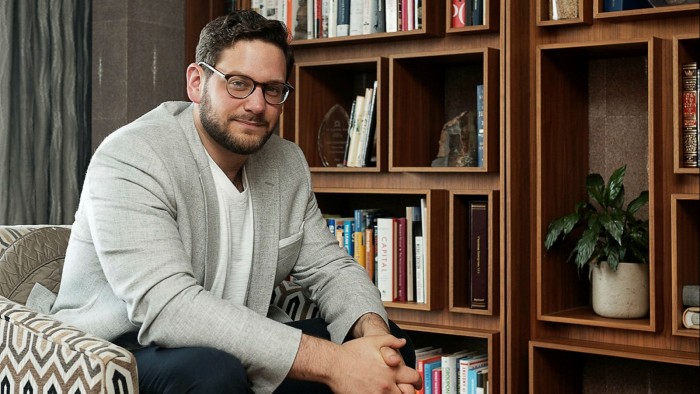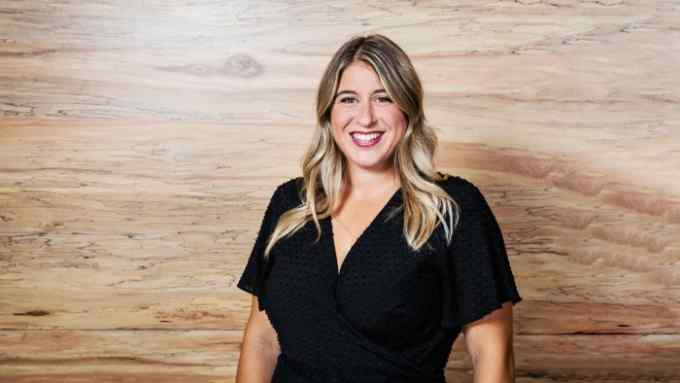Next generation behind family offices’ ESG push

Roula Khalaf, Editor of the FT, selects her favourite stories in this weekly newsletter.
In 2017 when Josh Tanenbaum joined the Polonsky Foundation, his stepfather’s namesake family office, he wanted to diversify its portfolio to include more investments that made a positive social impact.
Unlike most family offices, the Polonsky Foundation is purely philanthropic — its investment returns do not go into family pockets but fund projects supporting the arts, humanities and cultural heritage. But while its outcomes are for the greater good, the social good that could be achieved through the investments themselves is not an active consideration.
Mr Tanenbaum, who had always been inspired by the human rights activism shown by his parents (his father died seven weeks before he was born), set up his own impact venture capital business in 2016. The firm, Clearstone, invests in tech start-ups that aid social mobility, and Mr Tanenbaum was keen to bring similar investments to the Foundation.

“Typically the next generation takes one of two routes, which is fight or flight,” the 28-year-old says.
In the next few decades, trillions of dollars are expected to be transferred between generations in the US alone, placing wealth in the control of millennials, who are leading the charge for impact investments as well as those that meet environmental, social and governance (ESG) criteria.
But while a 2019 survey by financial services group Allianz found that 64 per cent of millennials are likely to make investment decisions based on societal problems that are important to them, Swiss bank UBS warned in its 2020 global family office report that “the move towards sustainable investing [encompassing both ESG and impact investing] should not be overstated”.
The UBS report, which surveyed 121 of the world’s largest single family offices worth an average $1.6bn each, found that while almost two-thirds of families regard sustainable investing as important for their legacies, it was “unclear whether good intentions will turn into reality”.
“There’s a lot of hype,” says Eugenia Koh, head of sustainable investing at Standard Chartered Bank. “[Impact and ESG investing] has not really reached a tipping point yet. It might have from an institutional perspective, but from a private wealth or family office perspective it’s still growing momentum.”
Mr Tanenbaum says recognising this reality has been vital in his approach at the Foundation, where he presents impact investments as key to strengthening the portfolio's diversification, as well as delivering solid financial returns.
“We still have a way to go to turn folks into believers, so it’s still a finance-first argument at this juncture,” he says. “If you start the conversation with a finance argument you can kind of leave the Trojan horse to work for itself.”
Jessica Hodges, head of family office audit and assurance at Deloitte UK, says this argument is used by many next gen pushing ESG investments in their family offices, as there is growing evidence that such funds outperform their peers. In 2019, nine of the biggest ESG mutual funds in the US outperformed the S&P 500. Ms Hodges says that while she has clients on “both sides of the spectrum” in their attitude towards ESG investing, they are “definitely still primarily focused on profit-making”.
“I’ve got families who will say all the right things, and then they get a really good investment opportunity and it doesn’t meet all of their potential ESG requirements, but because . . . they haven’t got to report to anyone, they’ll do it anyway,” she says.
Exclusionary policies, where families reject investments that do not meet their values, are an alternative to the active selection of ESG funds or impact investment projects, which aim to produce a measurable social or environmental impact alongside a financial return.
For example, a family office that wants to limit global warming might choose to exclude from its portfolio any company that derives more than 50 per cent of its revenue from carbon-intensive coal — an easier option than finding a company with specific goals to increase the development of sustainable energy.
According to the UBS 2020 global family office report, 39 per cent of family offices intend their portfolios to be sustainable in five years’ time, but mainly through exclusionary policies.
For those with an active approach, there is demand for specialist investment advisers. “Young people are asking ‘who is our wealth adviser and what are their capabilities?’ So now you have this tension with wealth advisers who are desperate to find products that are suitable,” Mr Tanenbaum says.
Ms Hodges adds: “Often there will be a very old, trusted adviser, a friend often very close to the patriarch. But you now might see them bringing in a younger ‘next-gen’ adviser.”

Comments